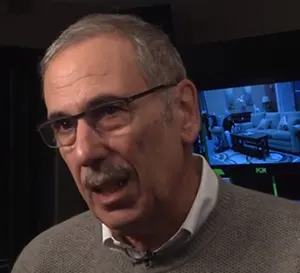Published on: April 10, 2025 at 8:27 pm
By Daniel Butcher
Elizabeth Holmes, who was convicted of fraud for lying about the effectiveness of the blood-testing product of her biotechnology company, Theranos, is a cautionary tale illustrating a potential downside of entrepreneurship. Unable to deal with the failure of her company’s blood-testing methods, she just plowed ahead, refusing to acknowledge the disappointing results or telling any of the investors—or anyone else—that the tests weren’t working. She pretended like everything was okay, continued to collect investor money, and built up the biotech startup to a $9 billion valuation.
Academy of Management Scholar Dean Shepherd of the University of Notre Dame said that it’s common for entrepreneurs to deal with failure poorly, but investors failed to effectively scrutinize Theranos.
“A lot of the stakeholders there were maybe willfully ignorant—they wanted to believe her,” Shepherd said. “They didn’t ask probing questions; they ignored the negative signals, which is what we call a confirmation device.
“They look for information that confirms their opinions, and they discount or ignore information that disconfirms them, and so in many ways, she was negligent, but they were also negligent,” he said.
Sometimes entrepreneurs can’t even acknowledge failure to themselves, much less publicly, because their entire identity is wrapped up in success. One major failure could crack that self-image.
Shepherd said that job loss—or the failure of one’s business—can devastate a person’s sense of identity. He wrote about his research findings related to such phenomena in Hitting Rock Bottom After Job Loss: Bouncing Back to Create a New Positive Work Identity.
“Failure can have a huge impact on you psychologically, because your identity is quite often highly related to the things that you do for work, and when you lose that identity, you go into a crisis or a freefall, because you don’t know who you are anymore,” Shepherd said. “And if you don’t know who you are, you don’t know how to socially act, and it can be a very dangerous situation.”
-
Daniel Butcher is a writer and the Managing Editor of AOM Today at the Academy of Management (AOM). Previously, he was a writer and the Finance Editor for Strategic Finance magazine and Management Accounting Quarterly, a scholarly journal, at the Institute of Management Accountants (IMA). Prior to that, he worked as a writer/editor at The Financial Times, including daily FT sister publications Ignites and FundFire, as well as Crain Communications’s InvestmentNews and Crain’s Wealth, eFinancialCareers, and Arizent’s Financial Planning, Re:Invent|Wealth, On Wall Street, Bank Investment Consultant, and Money Management Executive. He earned his bachelor’s degree from the University of Colorado Boulder and his master’s degree from New York University. You can reach him at dbutcher@aom.org or via LinkedIn.
View all posts
Up next....
Why Mending, Not Ending, DEI Programs Is Good for Business
Source: Shutterstock
By Nick Keppler
The 2020 police murder of George Floyd was a tipping point leading toa far-ranging acknowledgement of institutional inequities in the U.S. Many large, public-facing companies— including Walmart, Meta, and Amazon—responded by instituting diversity, equity, and inclusion (DEI) programs with the stated goal of identifying and eliminating their own internal barriers for historically marginalized groups. By 2022, DEI consultation was a $9.4 billion industry, and the number of jobs implementing and running DEI programs quadrupled from 2010 to 2022.
Almost as quickly as they embraced DEI, many of the same companies curtailed or downplayed those programs following the reelection of U.S. President Donald Trump, who has called DEI initiatives “illegal.”
For some, DEI is a process for powerful institutions to redress their own place in an unequal society. For others, it’s a form of discrimination and an opening for misplaced shame.
Public debate over DEI often misses an important point, according to Academy of Management Scholar Herman Aguinis of the George Washington University School of Business: Diversity is good for business.
“Research shows that when you have more diverse opinions and you’re more inclusive with people, everyone feels they belong, you have lower turnover, improved performance, and improved satisfaction—when you do it right,” he said.
World Economic Forum research showed that companies with higher marks in diversity achieve better revenue from innovation. A McKinsey & Company study found that companies in the top 25 percent for both racial and gender diversity in their industries were more likely to have superior financial returns than the average company.
“I am in favor of including more diverse perspectives in the workforce because research shows that that’s good for decision making,” said Aguinis. “It’s good for firm performance.”
But Aguinis also understands the backlash. He said that quota systems, where people with specific characteristics are put into positions of visibility to improve the company’s image, do not advance the diversity of perspectives that would spark a financial advantage. They also create a perception that others are advancing without the requisite knowledge, skills, and abilities.
“The phrase ‘DEI hire,’ I think, gives us an indication of the things that upset these people,” he said.
Aguinis was one of 23 scholars who contributed to an editorial in an international scholarly journal objecting to Trump’s targeting of DEI programs. He wrote, “Rather than eliminating DEI efforts, organizations should focus on improving them by expanding inclusive hiring practices, establishing clear accountability measures, integrating DEI into workplace strategy and culture, and implementing a comprehensive evaluation system.… In short: Mend it, don’t end it.”
-
Nick Keppler is a freelance journalist, writer, and editor. He has written extensively about psychology, healthcare, and public policy for The New York Times, The Washington Post, Slate, The Daily Beast, Vice, CityLab, Men’s Health, Mental Floss, The Financial Times, and other prominent publications (as well as a lot of obscure ones). He has also written podcast scripts. His journalistic heroes include Jon Ronson, Jon Krakauer, and Norah Vincent.
Before he went freelance, he was an editor at The Houston Press (which is now a scarcely staffed, online-only publication) and at The Fairfield County Weekly (which is defunct).
In addition to journalism, he has done a variety of writing, editing, and promotional development for businesses and universities, including the University of Pittsburgh and Carnegie Mellon University, and individuals who needed help with writing projects.
View all posts
Up next....
Research Findings Are Not Reaching Business Leaders
Source: Shutterstock
By Nick Keppler
There are now about 400 journals for management as an academic field, producing about 12,000 published articles a year in total. However, top decision-makers rarely learn anything from them, said Academy of Management Scholar Herman Aguinis of the George Washington University School of Business.
“Many of us are concerned that the research we do is not being used to the extent that we would like, and it’s called a research-practice gap,” Aguinis said. “Also, there’s a research-policy gap,” stemming from political leaders’ lack of familiarity with research produced in the field of management.
This gap is particularly frustrating, said Aguinis, because scholars on management and organizations have produced a wealth of scientifically sound research on issues that have dominated the news in 2025, including the downsizing of the federal government, the measurement of job performance, discrimination and diversity, equity, and inclusion policies, and the implementation of AI in workplaces.
“If you want to build a bridge, you will talk to the top engineers, but management scholars are not consulted with the same regularity,” said Aguinis.
This is not entirely the fault of those who could potentially benefit from our research, Aguinis added. Academic journals are often insular and publish articles that only make small contributions to our understanding of critical organizational phenomena. Also, the compensation and reward systems motivate academics to write mainly for other academics, not managers, business leaders, and decision-makers.
“For several reasons, much of our research is not aimed at affecting practice,” Aguinis said. “If you read the typical article of, let’s say, 20 pages, you may find one or two paragraphs at the end saying ‘implications for practice.’”
The research is not lost on everyone. A small number of elite companies look to academia to improve performance. Google is well-known for hiring Ph.D. holders, not just for computer-science roles but also for management and creative jobs. Marriott is a sponsor of doctoral development programs.
These companies reap the benefit in reputation, said Aguinis, often appearing in lists such as Fortune Magazine’s “Best Companies to Work For” series.
“All of these companies, all of them, employ Ph.D.s who actually read the research, and they try to implement leadership strategies and management practices that are consistent with what research says aligns with best-practice evidence as published in scholarly journals,” he said.
-
Nick Keppler is a freelance journalist, writer, and editor. He has written extensively about psychology, healthcare, and public policy for The New York Times, The Washington Post, Slate, The Daily Beast, Vice, CityLab, Men’s Health, Mental Floss, The Financial Times, and other prominent publications (as well as a lot of obscure ones). He has also written podcast scripts. His journalistic heroes include Jon Ronson, Jon Krakauer, and Norah Vincent.
Before he went freelance, he was an editor at The Houston Press (which is now a scarcely staffed, online-only publication) and at The Fairfield County Weekly (which is defunct).
In addition to journalism, he has done a variety of writing, editing, and promotional development for businesses and universities, including the University of Pittsburgh and Carnegie Mellon University, and individuals who needed help with writing projects.
View all posts
Up next....
Why CSR Is Still Vital for Companies
Source: Shutterstock
By Nick Keppler
Any act of corporate wrongdoing—real or perceived—can be publicized worldwide instantly via the internet and social media. This has made ideas of sustainability and corporate social responsibility (CSR)—which includes organizations’ initiatives geared toward achieving environmental, ethical, philanthropic, and financial objectives—increasingly important and far-ranging, said Academy of Management Scholar Herman Aguinis of the George Washington School of Business.
“Because of information flow across the internet, now we know about sweatshops, we know about companies polluting the environment, and we know about companies that are abusing and taking advantage of farmers and not providing benefits,” he said.
Not coincidentally, measurements of CSR initiatives that make a positive societal impact have grown not just to consider the company’s adherence to laws and regulations but also its impact on globalization, technological developments, fair trade, workers’ rights, pay equity, pollution, habitat destruction, and climate change.
“The expectations have changed mostly because of pressure from the outside,” Aguinis said.
To manage an increasingly complex set of considerations related to CSR and sustainability, many companies have emphasized the three Ps, Aguinis said: people, the planet, and profit.
The “people” aspect does not only encompass employees and shareholders but also a wide span of stakeholders, including “the communities you serve, your customers, the communities around your business locations,” he said.
For example, Intel, a computer components manufacturer, holds town-hall meetings before finalizing plans to open new chip plants.
Small steps like these make operating the business easier and bolster its reputation, Aguinis said.
“The argument is that you can do good and do well at the same time, that those things go hand in hand, is replacing an older cynical argument that some economists have proposed, which is that your priority and loyalty group and number-one stakeholder is your shareholders,” he said. “‘You should just be making money for them, and anything else that you do that goes outside of that is not your mandate, not your responsibility.’”
That thinking—exemplified by American economist Milton Friedman—will not help companies stand up to increasing social pressure and could hurt their reputation, Aguinis said.
“The CSR movement has changed because customers, consumers, vendors, and partners want companies to do more to impact society positively.”
-
Nick Keppler is a freelance journalist, writer, and editor. He has written extensively about psychology, healthcare, and public policy for The New York Times, The Washington Post, Slate, The Daily Beast, Vice, CityLab, Men’s Health, Mental Floss, The Financial Times, and other prominent publications (as well as a lot of obscure ones). He has also written podcast scripts. His journalistic heroes include Jon Ronson, Jon Krakauer, and Norah Vincent.
Before he went freelance, he was an editor at The Houston Press (which is now a scarcely staffed, online-only publication) and at The Fairfield County Weekly (which is defunct).
In addition to journalism, he has done a variety of writing, editing, and promotional development for businesses and universities, including the University of Pittsburgh and Carnegie Mellon University, and individuals who needed help with writing projects.
View all posts
Up next....
Going Beyond Surface-level Diversity Key to Avoiding Bias
Source: Shutterstock
By Nick Keppler
Spurred by the racial reckoning after the 2020 police murder of George Floyd, many large, public-facing companies in the U.S. implemented diversity, equity, and inclusion (DEI) programs with the stated goal of addressing their own barriers to hiring of, and advancement for, historically disadvantaged groups.
Too often, these efforts are only aimed at what Academy of Management Scholar Herman Aguinis of George Washington University calls “surface-level diversity,” the presence of people of different races, ethnicities, genders, and other classifications without a change in corporate culture led by executives who value varying perspectives.
“Deep-level diversity is when you have people around the table who bring different experiences and opinions and perspectives to the table, and organizational leaders listen to those diverse voices,” Aguinis said, who has both researched and consulted on institutional barriers that prevent the rise of “star performers” from various backgrounds.
“Surface-level diversity is when you look at someone’s gender, skin color, or race or ethnicity, and that’s what you call diversity,” he said. “It’s much easier to go for surface-level diversity.”
This gravitation towards superficial diversity often starts at the recruitment and interview stages. People in charge of hiring tend to like people with views and appearances similar to their own, said Aguinis, and they can slip into looking for candidates who have the same race, ethnicity, gender, and background as they do.
To prevent bias from creeping into the recruitment and hiring processes, Aguinis recommends conducting structured interviews.
“In a structured interview, you ask the same questions to all the candidates, and you actually score the answers with a scoring key you have created in advance,” he said. “If you have an unstructured interview, where you just chit-chat with a candidate, you’re more likely to like them or not, based on how similar they are to you.
“Also, you should never have just one interviewer because that person’s biases are more likely to be undetected.”
Aguinis added that the perception of a superficial quota system is one cause of a backlash that has led many companies to roll back or rebrand DEI efforts.
“When companies use it—the shortcut of surface-level diversity and just trying to use quotas or things like that—that’s when the diversity seems to be the opposite of what it tries to do: being exclusive instead of inclusive,” he said.
-
Nick Keppler is a freelance journalist, writer, and editor. He has written extensively about psychology, healthcare, and public policy for The New York Times, The Washington Post, Slate, The Daily Beast, Vice, CityLab, Men’s Health, Mental Floss, The Financial Times, and other prominent publications (as well as a lot of obscure ones). He has also written podcast scripts. His journalistic heroes include Jon Ronson, Jon Krakauer, and Norah Vincent.
Before he went freelance, he was an editor at The Houston Press (which is now a scarcely staffed, online-only publication) and at The Fairfield County Weekly (which is defunct).
In addition to journalism, he has done a variety of writing, editing, and promotional development for businesses and universities, including the University of Pittsburgh and Carnegie Mellon University, and individuals who needed help with writing projects.
View all posts
Up next....
Why Success Can Be the Enemy of Innovation in the Age of AI
Source: Shutterstock
By Jason Collins
A new Pew Research Center report reveals that public optimism remains low regarding the potential impact of AI in the workplace. However, refusing to work with new technologies can cause even the largest organizations to fail as this technology changes the game across many industries.
Academy of Management Scholar Wendy Smith of the University of Delaware reveals that it isn’t the small businesses that are most at risk, but rather larger organizations that choose to rely on what they know works. Smith calls this the paradox of success.
“The companies who are at the top of their market have the most to lose and therefore don’t want to take risks and thus are the most entrenched in what they already do,” Smith said. “Researchers call this the ‘paradox of success’ where successful companies are the ones that fail to adopt new technologies and innovation.”
Because smaller organizations don’t have this burden, they have nothing keeping them from trying new things and adopting new technologies such as AI and robotic process automation. History shows us that success can be an enemy of innovation. Smith draws parallels to brands such as Kodak and Polaroid, which failed to make the digital photography transition.
“BlackBerry was this amazing early force of the smartphone but could not compete when brands like Apple came into the market with updated technologies,” Smith said. “Blockbuster Video couldn’t make the transition from VHS tapes and DVDs to streaming when Netflix then took over.
“So, we see that story happen again and again and again,” she said.
If the past has taught us anything, it is that relying on past success without monitoring new technologies, tracking consumers’ preferences, and cultivating boldness in strategic planning prevents innovation.
“I think we’re going to see the same thing now,” Smith said. “And so there is wisdom in ‘Don’t throw out the baby with the bathwater.’
“It’s totally new technology, but leaders should be learning from history what it means to innovate within an existing company,” she said.
Up next....
Everyone Will Suffer in the Wake of Trump Administration’s Research Cuts
Source: Shutterstock
By Paul Friedman
This year, the Trump administration has fired many government researchers, canceled scientific and medical research grants, and targeted leading universities, including Harvard, with debilitating funding freezes. Fear of reprisal has caused many scientists, doctors, professors, and university administrators to opt for silence instead of speaking up to defend the research that is getting the ox.
Academy of Management (AOM) Scholar Peter Bamberger of Tel Aviv University says much of the research produced by him and his colleagues, including many AOM members, has a day-to-day impact on industry practitioners, including organizational leaders and managers. Cuts in federal funding for research will have a negative impact on industry, as well as researchers, colleges and universities, and other research institutions.
“What we publish in our primary journals have to be both theoretically important and have practical relevance,” Bamberger said. “It’s got to be interesting from a theoretical perspective and intellectual perspective, and it’s got to have some sort of surprising element—going against conventional wisdom—but it also has to translate that surprising finding into something that managers can do something about.
“And there are thousands of organizational consultants who read the findings published in our journals and then translate that into actual practice in organizations,” he said.
Bamberger points out that a great deal of research is specifically aimed at examining current practices by managers and their efficacy. Recently, he published a study of the managerial approach called design thinking, which focuses on understanding clients’ needs and designing innovative solutions.
“Design thinking has been around for about 10 years,” Bamberger said. “It’s an approach to create more innovative ways of boosting learning and finding innovative solutions to common problems or sometimes even really wicked problems.
“It became a fad and a lot of organizations adopted it, but no one ever bothered to actually assess whether or not it has an impact and whether this impact is any greater than other types of learning-oriented interventions, like team building,” he said.
Bamberger and research colleagues designed a field experiment to test the impact of design thinking as a team learning intervention. They compared over time what happens in terms of the efficiency and productivity of teams using different interventions.
“Is design thinking more efficacious than an alternative?” Bamberger said. “And we found out that in fact it is, and we actually demonstrate the mechanism by which it operates and why it’s more effective than other mechanisms.
“So these types of practical implications are useful to managers and to the extent that we don’t have funding necessary to do this type of research, everybody suffers,” he said.
-
Paul Friedman is a journalist who worked for 45 years at the three major news networks. He began as a writer and reporter and then became a producer of major news broadcasts, including Nightly News and the Today show at NBC, and World News Tonight with Peter Jennings at ABC. He also served as Executive VicePresident of News at ABC and CBS. Later, he taught journalism as a professor at Columbia University, New York University, and Quinnipiac University. Friedman is now semi-retired and lives with his wife in Florida.
View all posts
Up next....
Understanding Time to Manage It Better
By Daniel Butcher
Time flies when you’re having fun or in the zone at work, but it crawls when you’re in pain or doing a boring task.
Academy of Management Scholar Abbie Shipp of Texas Christian University, who coauthored an Academy of Management Annals article on that topic with Karen Jansen of North Carolina State University, said that a key element of subjective time is people’s interpretation and perception of time itself.
“Working on the expense report, even 15 minutes probably feels like forever versus 15 minutes in a crisis situation feels like a blink of an eye,” Shipp said. “There are different ways in which we perceive time itself, the units of time, and that shapes how we structure our time.
“That could be things like deadlines—say you asked me, ‘Hey, can you get this to me by Thursday?’” she said. “That may seem like a very long deadline to you, but if I have a very busy week, maybe that feels like that’s way too soon.
“It has implications for how and when we work, especially how we work with each other.”
In Shipp’s and her colleagues’ research on different elements of subjective time, they looked at all the different ways in which people have studied time, and which aspects of it scientists haven’t studied. People who take time to examine how they perceive and interpret time may be able to improve their time management.
“We found was there are many gaps, both in how researchers and practitioners look at time,” Shipp said. “We found many ways in which you can better use your time if you think about it subjectively and not just objectively.”
A sample of Shipp’s AOM research findings:
-
Daniel Butcher is a writer and the Managing Editor of AOM Today at the Academy of Management (AOM). Previously, he was a writer and the Finance Editor for Strategic Finance magazine and Management Accounting Quarterly, a scholarly journal, at the Institute of Management Accountants (IMA). Prior to that, he worked as a writer/editor at The Financial Times, including daily FT sister publications Ignites and FundFire, as well as Crain Communications’s InvestmentNews and Crain’s Wealth, eFinancialCareers, and Arizent’s Financial Planning, Re:Invent|Wealth, On Wall Street, Bank Investment Consultant, and Money Management Executive. He earned his bachelor’s degree from the University of Colorado Boulder and his master’s degree from New York University. You can reach him at dbutcher@aom.org or via LinkedIn.
View all posts
Up next....
Trade Tasks with Coworkers to Increase Meaningfulness
By Daniel Butcher
Many people want to be able to find meaning in their jobs, but fewer stop to take stock of their current roles and whether there’s anything that can be done to make them more meaningful.
Academy of Management Scholar Abbie Shipp of Texas Christian University, who coauthored an Academy of Management Annals article on that topic with Karen Jansen of North Carolina State University, said that too many of us don’t slow down enough to think about the meaning of time at work and how we spend it.
“I don’t think people often stop and reflect about, ‘Is what I’m doing at work meaningful to me?’—not what’s prioritized in my job or for somebody else, but rather, ‘Is what I’m doing in my work meaningful to me personally?’” Shipp said. “Particularly if I have some choice—‘I get to work on this project’ or ‘I get to do this volunteer opportunity’—those things are more or less meaningful to different people, so finding ways to increase those activities can shape how meaningful your job is and help you to move away from meaningless tasks.
“Maybe do reports at your low-energy time of day, but do the meaningful activities at the time when you’re most productive and can most take them in. Then your work feels more fulfilling because you’re really synchronizing those things,” she said. “You also can offshoot or delegate things that you don’t find meaningful—quite frankly, I’ve done this with colleagues—you trade or swap tasks with somebody that you work with; maybe they do find those things meaningful, and so we can do a swap of job activities.
“Maybe I join a committee because it gives me a lot of meaning and I love it but that you think is not very meaningful, and vice versa.”
A sample of Shipp’s AOM research findings:
-
Daniel Butcher is a writer and the Managing Editor of AOM Today at the Academy of Management (AOM). Previously, he was a writer and the Finance Editor for Strategic Finance magazine and Management Accounting Quarterly, a scholarly journal, at the Institute of Management Accountants (IMA). Prior to that, he worked as a writer/editor at The Financial Times, including daily FT sister publications Ignites and FundFire, as well as Crain Communications’s InvestmentNews and Crain’s Wealth, eFinancialCareers, and Arizent’s Financial Planning, Re:Invent|Wealth, On Wall Street, Bank Investment Consultant, and Money Management Executive. He earned his bachelor’s degree from the University of Colorado Boulder and his master’s degree from New York University. You can reach him at dbutcher@aom.org or via LinkedIn.
View all posts
Up next....
An Overlooked Challenge of RTO Mandates
By Daniel Butcher
It may be counterintuitive, but if leaders and managers are willing to be more flexible in how employees manage their own time, then they may get more productivity out of them. That goes against the grain as the U.S. federal government, tech giants including Amazon, Apple, Google, and Microsoft, and financial-services titans including J.P. Morgan Chase, Citigroup, Goldman Sachs, and BlackRock have all issued return-to-office (RTO) mandates.
Academy of Management Scholar Abbie Shipp of Texas Christian University, who coauthored an Academy of Management Annals article on the how we experience time with Karen Jansen of North Carolina State University, said that the subjective nature of how we perceive time and the variance of which hours people are most productive at work are factors that contribute to the “square-peg-in-a-round hole” awkwardness of requiring employees to be in the office five days every week from nine to five.
“That’s why things like the return-to-office mandates can be challenging. Even things as simple as saying, ‘We’ll do a hybrid schedule, but you’ll need to be in the office during these hours on these days of the week; here’s when we’ll be back,’” Shipp said.
“That assumes that schedule works for everyone, and it’s hard to meet individual needs while you impose collective schedules,” she said. “That doesn’t mean that we shouldn’t think about it; it means, in fact, we should think about it more–but it takes a lot of talent to do this.”
People appreciate flexibility
“First of all, we have to be aware that people need individual flexibility, so from a leadership perspective, we have to start asking employees, ‘What do you value? When do you like to work? What’s meaningful to you? What’s your background about time management?’” Shipp said.
“I don’t think a lot of leaders do that, because if they don’t know their own personal views and uses of time, they’re certainly not assuming that employees are different from them,” she said.
“My research would indicate that individuals could be very different about people’s scheduling preferences and time-management habits, yet leaders make those assumptions and never have them become explicit.”
A sample of Shipp’s AOM research findings:
-
Daniel Butcher is a writer and the Managing Editor of AOM Today at the Academy of Management (AOM). Previously, he was a writer and the Finance Editor for Strategic Finance magazine and Management Accounting Quarterly, a scholarly journal, at the Institute of Management Accountants (IMA). Prior to that, he worked as a writer/editor at The Financial Times, including daily FT sister publications Ignites and FundFire, as well as Crain Communications’s InvestmentNews and Crain’s Wealth, eFinancialCareers, and Arizent’s Financial Planning, Re:Invent|Wealth, On Wall Street, Bank Investment Consultant, and Money Management Executive. He earned his bachelor’s degree from the University of Colorado Boulder and his master’s degree from New York University. You can reach him at dbutcher@aom.org or via LinkedIn.
View all posts
Up next....
There’s More than One Way to Manage Time Effectively
By Daniel Butcher
While managers often set rigid work schedules, to-do lists, and deadlines, more flexibility can enable workers to prioritize tasks in ways that help them manage their time more effectively.
Academy of Management Scholar Abbie Shipp of Texas Christian University, who coauthored an Academy of Management Annals article on the subjective experience of time with Karen Jansen of North Carolina State University, said that there’s no one-size-fits-all method of time management that’s effective for everyone.
“Our research on how people perceive and interpret time makes us stop and question fixed time-management suggestions: ‘Start your day in this way,’ or ‘Work at this pace and do these things,’ or ‘Here’s how you focus 100% of the time,’” Shipp said. “Those hacks can be great if you need them, but for some people, that’s not what they need.
“For many people, quite frankly, what we need is more thought into questions like, ‘What do I subjectively perceive about time, and where did I get my understanding of time?’” she said.
Shipp said that she began thinking about how work influences our perception of time when looking at her parents’ schedules, as well as her own early work experiences.
“My dad was a banker, so he had bankers’ hours, and then my very first job was at a government facility where we had to track our time to the 10th of an hour and charge it to different accounts, so I became really aware of time,” Shipp said. “It’s hard for me to step away from the office at three o’clock, because I think, ‘Nope, this time must be allocated in this way until after five o’clock.’
“When we start to question those socialization influences, we say, ‘Is this assumption about time helping me or is this harming me?’” she said. “That’s what subjective time brings in, the awareness of different ways to perceive the passage and meaning of time in concert with objective time: clocks, calendars, and schedules.
“If we think of time subjectively, we can better manage our time and our energy in ways that are fulfilling and productive, both for our work and for ourselves.”
A sample of Shipp’s AOM research findings:
-
Daniel Butcher is a writer and the Managing Editor of AOM Today at the Academy of Management (AOM). Previously, he was a writer and the Finance Editor for Strategic Finance magazine and Management Accounting Quarterly, a scholarly journal, at the Institute of Management Accountants (IMA). Prior to that, he worked as a writer/editor at The Financial Times, including daily FT sister publications Ignites and FundFire, as well as Crain Communications’s InvestmentNews and Crain’s Wealth, eFinancialCareers, and Arizent’s Financial Planning, Re:Invent|Wealth, On Wall Street, Bank Investment Consultant, and Money Management Executive. He earned his bachelor’s degree from the University of Colorado Boulder and his master’s degree from New York University. You can reach him at dbutcher@aom.org or via LinkedIn.
View all posts














